Resources
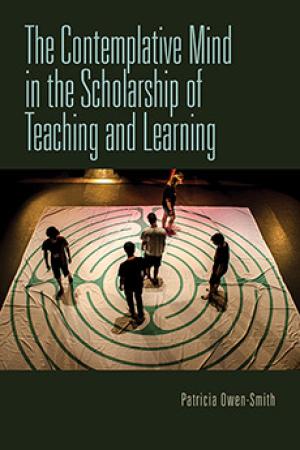
In The Contemplative Mind in the Scholarship of Teaching and Learning, Patricia Owen-Smith considers how contemplative practices may find a place in higher education. By creating a bridge between contemplative practices and the Scholarship of Teaching and Learning (SoTL), Owen-Smith brings awareness of contemplative pedagogy to a larger audience of college instructors, while also offering classroom models and outlining the ongoing challenges of both defining these practices and assessing their impact in education. Ultimately, Owen-Smith asserts that such practices have the potential to deepen a student’s development and understanding of the self as a learner, knower, and citizen of the world.
Discussions of world citizenship that elide the challenge of grappling with religious worldviews expose a covert intolerance at the very core of secularism, calling into question the “liberality” of liberal education. The ethical imperative of engaging with different worldviews not only demands that religions be taught, but also raises questions regarding how religious worldviews should be taught.
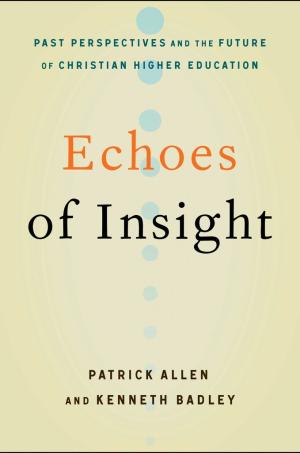
Click Here for Book Review Christian higher education needs something richer and deeper. Faith-based institutions yearn for more than business as usual, and Echoes of Insight invites you to listen again to older, forgotten, and perhaps even ignored voices. Designed to stimulate conversation among colleagues, Echoes of Insight offers brief summaries of several thought-provoking writers from the last century and encourages a new, vigorous conversation about Christian higher education. (From the Publisher)
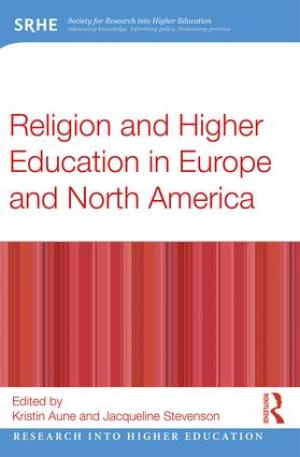
Click Here for Book Review Religion and Higher Education in Europe and North America illuminates the experiences of staff and students in higher education as they negotiate the university environment. Religious extremism has been rising across Europe, whilst recent attacks have thrown public debate around the place of religion on campus, the role of universities in recognising and managing religious fundamentalism and freedom of speech on campus into sharper focus. Despite these debates, research exploring religion on campus has been largely absent from discourse on higher education outside of America, with policy and practices designed to deal with religion on campus largely founded on supposition rather than evidence. This book speaks into that void, including results from recent studies in the field which form an empirically grounded base from a broad variety of perspectives on religion at universities. Aiming to offer a deeper perspective, more dialogue, and engagement on the experiences of students, Religion and Higher Education in Europe and North America presents us not only with an opportunity to counter growing trends of intolerance, but for people to connect with the humanity of others. Focusing on what research reveals about staff and students’ experiences, it incorporates research from different academic disciplines including sociology, education, social policy, theology and religious studies, and across different faith and belief groups. This thought-provoking and challenging volume features chapters written by researchers involved in informing policy and practice relating to religion and belief in higher education in the UK, US, Canada, France and the Netherlands . Spanning the academic-practitioner divide, students and academics interested in the sociology of religion and of higher education, as well as those responsible for the practical management of campus life, will find this text of particular importance. (From the Publisher)
What does it mean to teach virtue, or to learn it? We consider this question through an institutional review board (IRB) supported research study attending to student learning experiences in undergraduate ethics courses at a Catholic university with an explicit commitment to social justice. This essay draws on and interprets qualitative data concerning the outcomes of select pedagogical approaches that involve exposing students to the experiences of others: the use of narratives; participation in structured experiential learning activities; and community engagement through deep listening and facilitated dialogue. We focus our interpretation around the implications of these pedagogies in relation to student understanding of and attitudes regarding three character traits identified as “other-regarding” virtues in theological and philosophical scholarship – altruism, compassion, and solidarity. This paper considers the implications of these pedagogies and the practical effects of different sorts of teaching strategies on students' self-understanding as moral agents
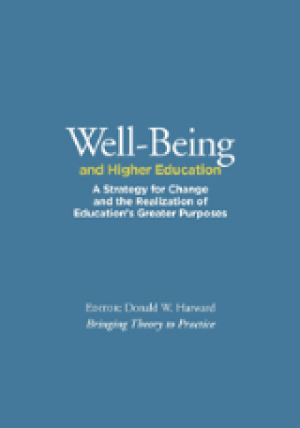
Click Here for Book Review The newest release from Bringing Theory to Practice, Well-Being and Higher Education, explores the multiple connections of well-being to higher education and why those connections matter—for the individual lives of students and those who teach; for the institution; and for whether or not the unique promise of higher education to a democratic society can be advanced and realized. The publication’s thirty-five original essays and provocations—by some of the most highly respected voices within and beyond the academy—address the theoretical underpinnings and practical expressions of these connections. Articles include “Higher Education, the Struggle for Democracy, and the Possibility of Classroom Grace”; “Why Well-Being is Fundamental to Liberal Learning”; “Honoring the Humanity of Our Students”; “Thriving: Expanding the Goal of Higher Education”; and “College Makes Me Feel Dangerous: On Well-Being and Nontraditional Students.” Well-Being and Higher Education opens the discussion on learning’s connection to well-being; responds to current challenges against the state of higher education today; and brings to the forefront a conversation considering the greater purposes of higher education and the need to preserve and revive the institution’s role to look beyond itself to a greater good. (From the Publisher)
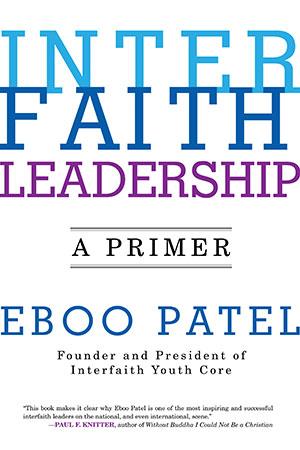
Click Here for Book Review A guide for students, groups, and organizations seeking to foster interfaith dialogue and promote understanding across religious lines In this book, renowned interfaith leader Eboo Patel offers a clear, detailed, and practical guide to interfaith leadership, illustrated with compelling examples. Patel explains what interfaith leadership is and explores the core competencies and skills of interfaith leadership, before turning to the issues interfaith leaders face and how they can prepare to solve them. Interfaith leaders seek points of connection and commonality—in their neighborhoods, schools, college campuses, companies, organizations, hospitals, and other spaces where people of different faiths interact with one another. While it can be challenging to navigate the differences and disagreements that can arise from these interactions, skilled interfaith leaders are vital if we are to have a strong, religiously diverse democracy. This primer presents readers with the philosophical underpinnings of interfaith theory and outlines the skills necessary to practice interfaith leadership today. (From the Publisher)
This interview was recorded and transcribed in November 2015. Stephen Prothero is a professor of religious studies at Boston University, where he has taught since 1996. His publications include several that directly address teaching about religion, most notably Religious Literacy: What Every American Needs to Know – and Doesn't, which made an argument regarding K-12 education. In this manuscript he pulls the conversation into his own undergraduate classrooms – providing a vivid glimpse of his teaching practices, including how he conducts large lecture classes and seminars, how he works with teaching assistants, and how he conducts discussions even in very large courses. He also shares his broader reflections on the nature and importance of religious literacy and its place in American education.
We analyzed 2,621 written student comments to better understand themes which most contribute to religion classes being rated high or low in terms of the spiritual benefit students received from the class. From 2,448 religion classes taught from September of 2010 through April of 2014, comments from the top 61 (2.5 percent) and bottom 51 (2.1 percent) rated classes in terms of being “spiritually inspiring” were compared for emerging themes. The most frequent themes in higher-ranked spiritually inspiring courses were (1) intellectually enlightening and (2) applied religion to life. In lower-ranked spiritually inspiring courses the themes (1) class time was ineffective and (2) poor assessments were prevalent. We explore the practical implications from these and other findings.
This article proposes that religious studies instructors can gain pedagogical insights regarding the value and teaching of empathy from pre-professional health care and counseling fields. I present research findings from these fields to support claims that empathic skills are teachable. I then show that empathy has been established within the field of religious studies as important in order to understand the beliefs of the religious other. I conclude that religious studies educators should be concerned about how to teach empathy, and suggest that pre-professional research findings point us in the direction of how to do this. Experiential exercises such as role-playing and other simulation exercises seem to be most effective in teaching empathic skills. I present examples that demonstrate how listening exercises and the role-playing of cases can be used in the religious studies classroom and can assist in the development of empathy for the religious other.